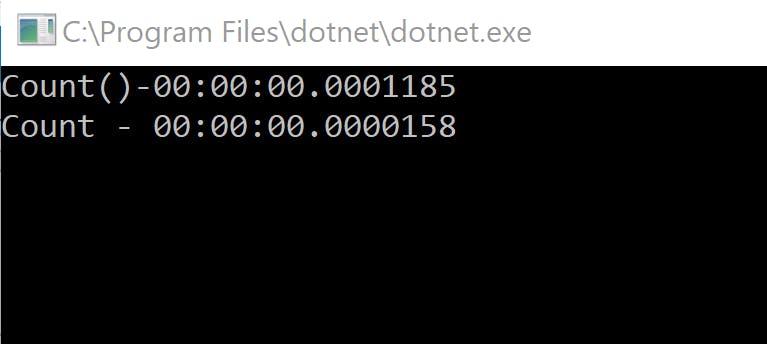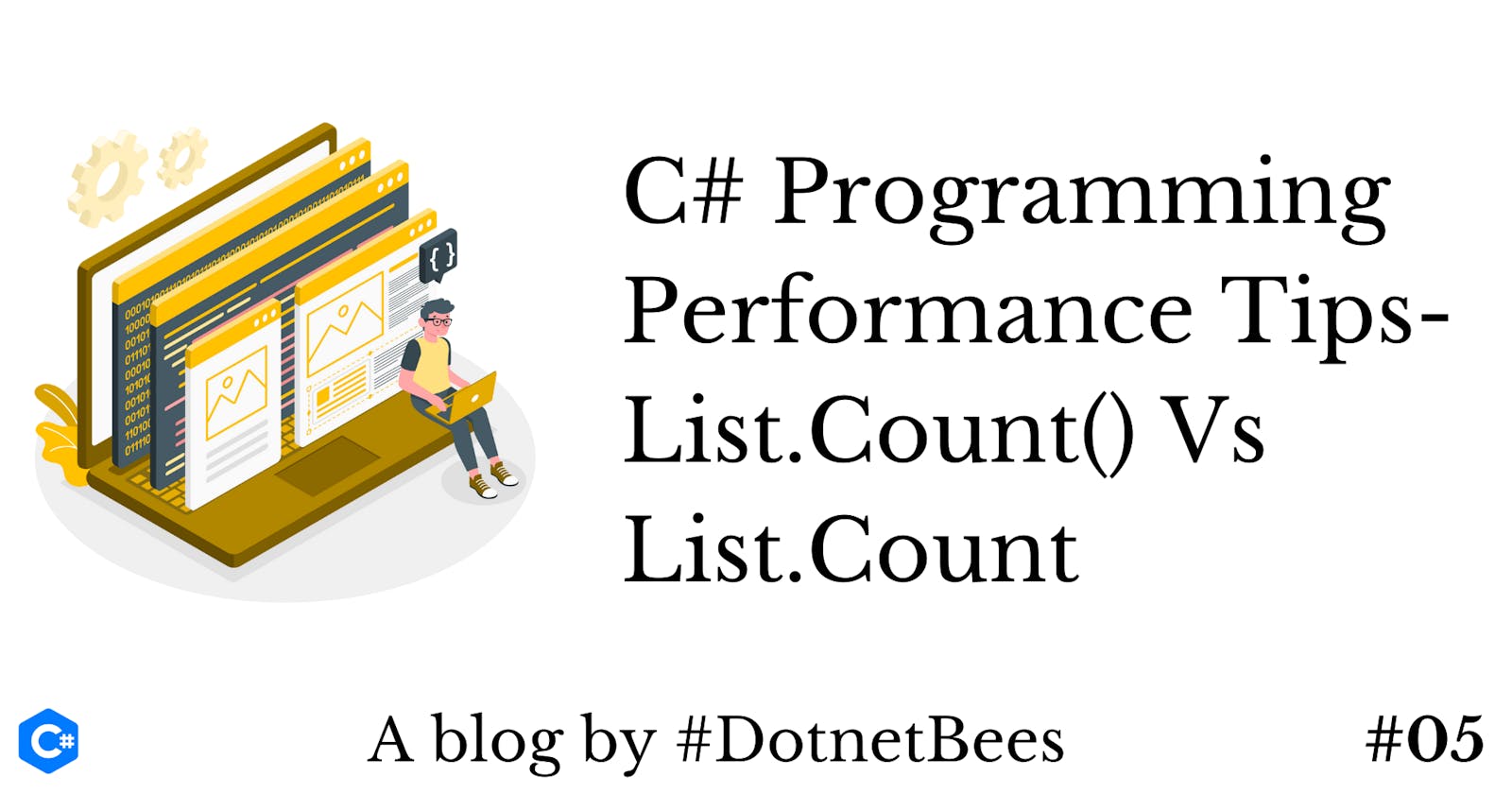You can read all the C# performance tips from the following links,
- C# Programming Performance Tips - Part One - String Split
- C# Programming Performance Tips - Part Two - String Equals
- C# Programming Performance Tips - Part Three - Adding Strings
- C# Programming Performance Tips - Part Four - List.Count() Vs List.Any()
- C# Programming Performance Tips - Part Five - List.Count() Vs List.Count
- C# Programming Performance Tips - Part Six - Array Length
In this blog, we will do benchmarking for List.Count() which is a method and List.Count which is a property.
List<string> strs = new List<string>() { "Akshay", "Patel", "Panth", "Patel" };
Stopwatch watch = new Stopwatch();
List.Count()
watch.Start();
int count = strs.Count();
Console.WriteLine("Count()-{0}", watch.Elapsed);
List.Count
watch.Restart();
int count1 = strs.Count;
Console.WriteLine("Count - {0}", watch.Elapsed);

Thus, as we can see, whenever we want to get the count of a list, we should use the List.Count property.

